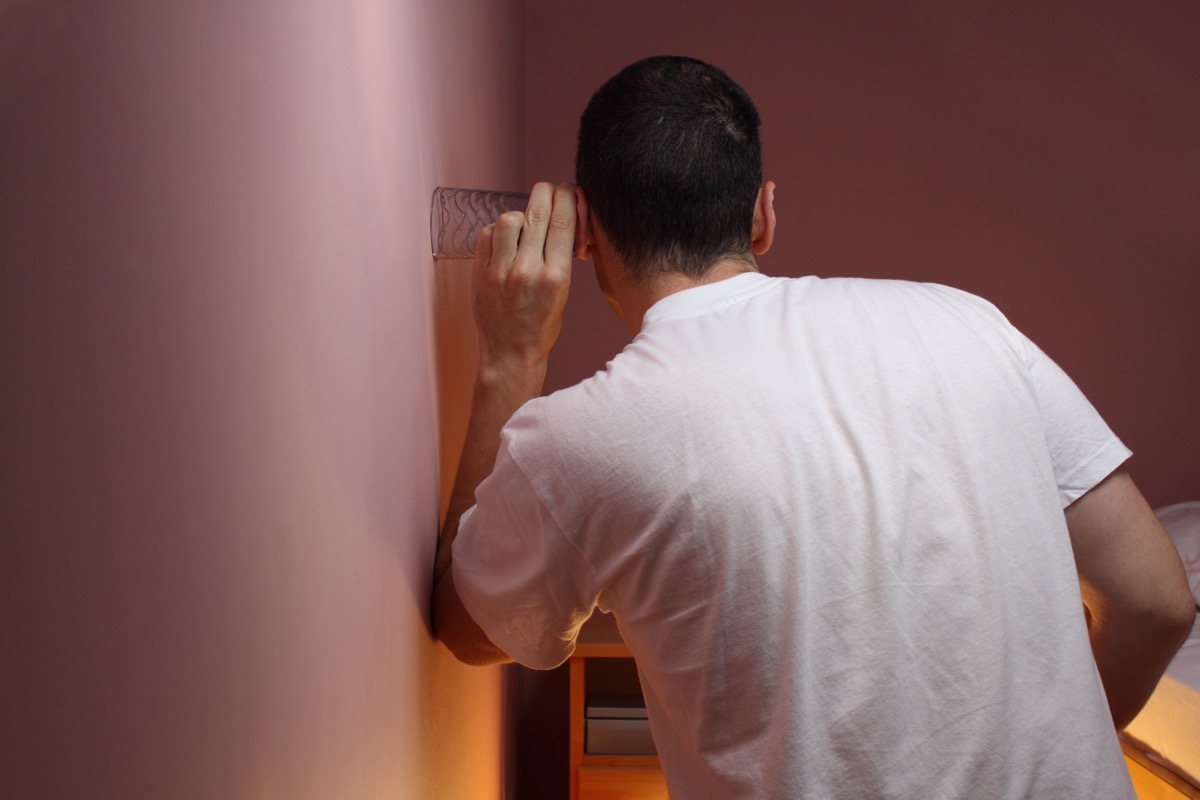RELATED: If You See This in Your Yard, Prepare for a Bug Invasion, USDA Says. You’ve checked the lights, you’ve checked the washer and dryer, and yet, that clicking sound in your basement persists. If you’re hearing either clicking or chewing noises in your basement, don’t waste any time calling an exterminator, because this may signal a major termite infestation. “Soldier termites bang their heads against the wood or shake their bodies when the colony is disturbed to signal danger to the other termites. The worker termites, the ones who love eating your woodwork, are noisy eaters. If you put your ear close to any wood infested by termites you can hear them munching away,” explains Nancy Troyano, PhD, a board-certified entomologist with Western Exterminator. For the latest health and safety news delivered straight to your inbox, sign up for our daily newsletter. While many basements—particularly those with water issues—can have an unpleasant odor from time to time, if a musty or oily scent in your basement develops suddenly or gets worse, don’t wait to call in the pros. “If you smell this weird, unique odor, you might be looking at a home infested with roaches,” explains entomologist and pest control expert Ryan Smith, owner of Ant & Garden Organic Pest Control. Since cockroaches are nocturnal, they may be hiding out, eating, and breeding in your basement long before you ever see a single bug. If you’ve noticed the smell of decaying raspberries in your basement, check the fridge first and call an exterminator next. “After a blood meal, bed bugs give off pheromones that smell like old raspberries to us,” says Megan Cavanaugh of Done Right Pest Solutions. While signs of bed bugs—like marks on your sheets or bites on your body—may only become obvious once you have a full-blown infestation, Cavanaugh notes that leaving dry ice out in a container overnight can help attract these pests if you want to confirm your suspicions before calling an exterminator. That ammonia smell in your basement isn’t necessarily the result of cleaning fluid you spilled down there—it may also be a sign of a rodent infestation.ae0fcc31ae342fd3a1346ebb1f342fcb “Rats tend to smell like ammonia,” explains Tim Sherrer, an associate certified entomologist and owner of Expest Exterminating. Until you can have a professional come fix the problem for you, Sherrer recommends sealing any entry points to your home, removing potential food sources from your basement, and cleaning up any clutter in which rats might otherwise be able to hide. While mold issues in your basement can trigger allergy symptoms—think watery eyes, sneezing, itching, or a runny nose—there’s another potential culprit: rats and mice. “If you have a rodent infestation, droppings and fur can easily cause allergic reactions,” says entomologist Nicholas Martin, PhD, founder of Pest Control Hacks. If you’ve ruled out other potential allergens, Martin recommends “[inspecting] your house for various signs of rodents, including rodent feces, damage, mice/rat pee stains, and noises under the flooring.” RELATED: 5 Things You’re Buying That Bring Bed Bugs Into Your House, Experts Say.




